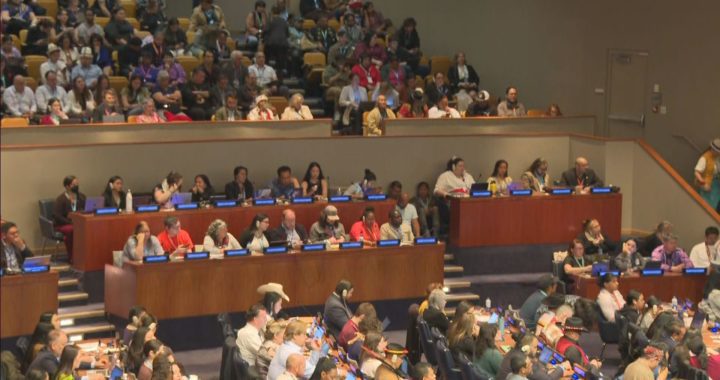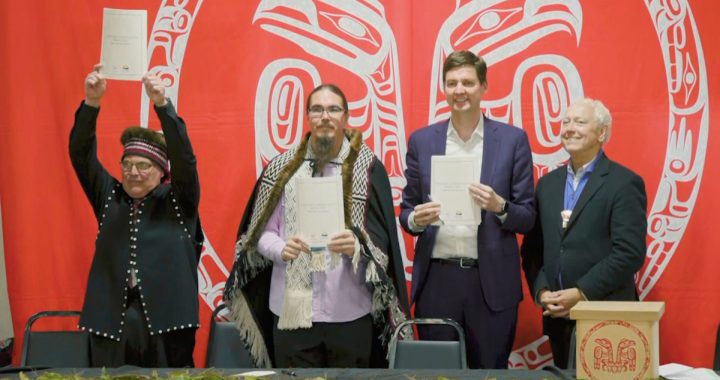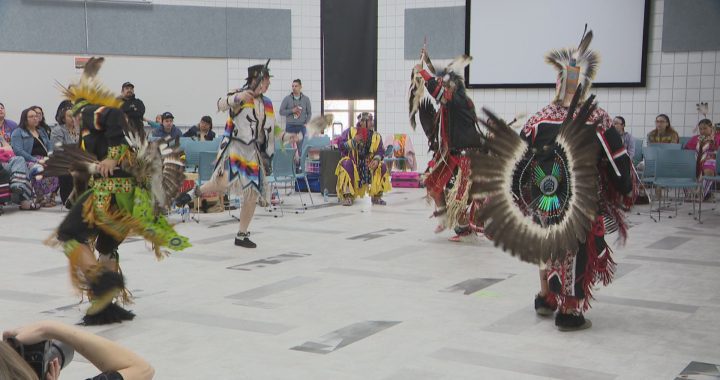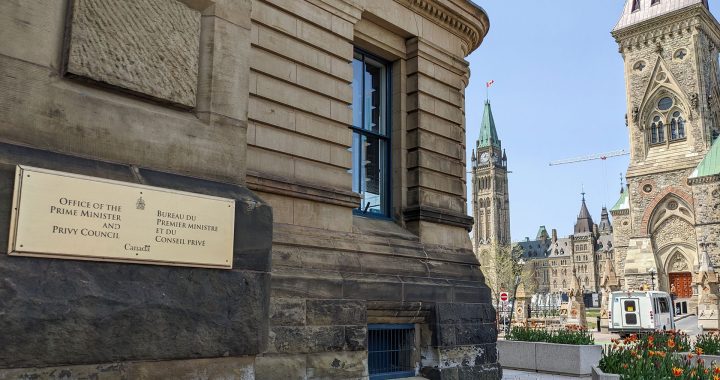(Kitigan Zibi Chief Jean Guy Whiteduck during a press conference Thursday. Trina Roache/APTN)
Jorge Barrera
APTN National News
The Kitigan Zibi Anishinabeg First Nation has filed an Aboriginal title claim over the Ottawa region, including the lands of Parliament Hill, in a legal move expected to upend ongoing modern-day treaty talks with a rival Ontario Algonquin group and plans to construct a condo development along the Ottawa River.
Kitigan Zibi Chief Jean Guy Whiteduck announced Thursday his community filed the Aboriginal title claim with the Superior Court of Ontario on Wednesday. The claim includes the lands of the Parliament buildings, the Supreme Court of Canada and the National Library and Archives.
The claim encompasses Ottawa lands facing major developments, including LeBreton Flats, where the National Capital Commission is currently in negotiations with a group called RendezVous LeBreton and the City of Ottawa to develop a new home for the NHL’s Ottawa Senators and a surrounding neighbourhood.
Kitigan Zibi sits in Quebec about 130 kilometres north of Ottawa.
The Kitigan Zibi title claim also includes the Chaudiere and Albert islands on the Ottawa River where the green Zibi condo project is slated for construction. The Zibi condo project, led by Windmill Development Group and Dream Unlimited Corp, aims to create the “world’s most sustainable community.”
In addition, the Kitigan Zibi claim asserts Aboriginal title over Victoria Island, a traditional Indigenous gathering spot where former Attawapiskat chief Theresa Spence held her fast during the height of the Idle No More movement.
The Aboriginal title claim from Kitigan Zibi also presents a significant obstacle to completion of the controversial Algonquins of Ontario (AOO) modern-day treaty negotiations which is headed towards a final agreement.
“The Crown has never addressed the fact that Parliament, the Supreme Court of Canada and the Library and Archives are built on unceded Algonquin land,” said Whiteduck, during a press conference at the Hilton Lac Leamy in Gatineau, Que., during the Assembly of First Nations annual winter chiefs gathering. “We have brought this claim to the courts as a last resort. We are tired of being ignored by the Crown and it is time for the Crown to address our Aboriginal title throughout Ottawa and the surrounding area.”
Whiteduck took particular aim at the AOO modern-day treaty which reached an agreement-in-principle in October. The AOO, Queen’s Park and Ottawa are now on the path to a final agreement for the $300 million deal that would see about 47,550 hectares of Crown land transferred to the AOO, which includes nine Algonquin entities and one recognized band, the Algonquins of Pikwakanagan. The treaty encompasses about 3.6 million hectares in eastern Ontario, including the city of Ottawa.
Whiteduck said the AOO, aside from Pikwakanagan members, is comprised of “self-declared Algonquins.” He said the majority of the Algonquin nation was forced away from their ancestral lands and onto reserves in Quebec.
“We are talking about the people, not (Pikwakanagan) itself, they are duly recognized, but they allowed and opened the door to a wide discretion on who is Algonquin,” he said. “(Indigenous Affairs) has gone way further in recognizing who is an Algonquin….In Quebec especially, just about every Quebecker can claim at least 1 per cent Aboriginal ancestry.”
A report by Kebaowek First Nation, another Algonquin community in Quebec, found several examples of AOO voters who were essentially “non-Aboriginal.” The report examined the genealogy of 200 people on the AOO voters list and found 72 only had one so-called root ancestor stretching between two to six generations in the past.
Kebaowek, along with Timiskaming and Wolf Lake First Nations, are also mulling court action against the AOO treaty. The three communities, which are in Quebec, say they have about 346,000 hectares of overlap territory with the AOO claim.
Whiteduck said he launched the Aboriginal title claim on behalf of the Algonquin Nation.
“We don’t believe we need to sell our soul to get a few peanuts,” he said. “Our goal is to be fair partners in Canada, not on the sidelines like beggars in the land which gave our people everything we needed to survive. It is time to become real players and have our rightful place.”
@JorgeBarrera









